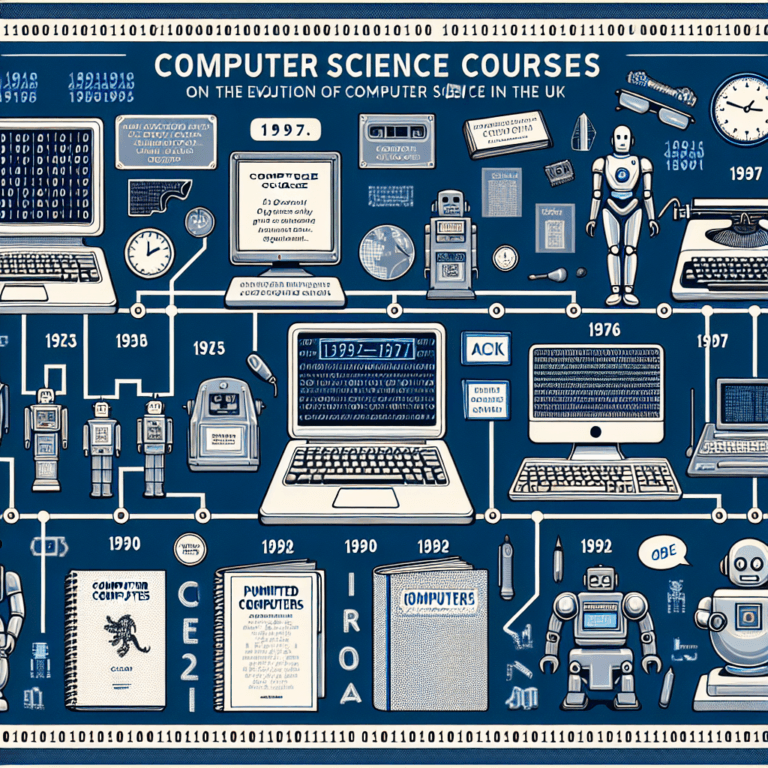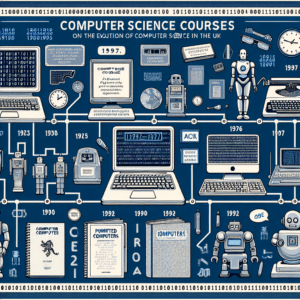Computer science courses in the UK have undergone significant evolution over the years, reflecting the rapid advancements in technology and the increasing demand for skilled professionals in this field. From the early days of programming languages and hardware design to the current emphasis on artificial intelligence and cybersecurity, the curriculum has continuously adapted to meet the needs of the industry and prepare students for careers in a digital world.
In the past, computer science courses were heavily focused on technical skills such as coding and software development. Students were taught programming languages like Java, C++, and Python, and gained an understanding of computer architecture and operating systems. While these skills are still fundamental to the discipline, the curriculum has expanded to include a broader range of topics that reflect the diverse applications of computing in today’s society.
One major shift in computer science courses is the increased emphasis on data science and analytics. With the rise of big data and the need for businesses to make informed decisions based on data-driven insights, students now learn how to collect, process, and analyze large datasets using statistical and machine learning techniques. This has led to the inclusion of modules on data mining, data visualization, and predictive modeling in many computer science programs.
Another important trend in the evolution of computer science courses is the growing focus on cybersecurity. As cyber threats become more complex and sophisticated, there is a heightened demand for professionals who can safeguard networks, systems, and data from malicious attacks. Courses now cover topics such as cryptography, network security, and ethical hacking to ensure that students are well-equipped to protect digital assets and mitigate cybersecurity risks.
Furthermore, the field of artificial intelligence (AI) has gained prominence in computer science education, with courses covering topics such as machine learning, neural networks, and natural language processing. Students learn how to develop AI algorithms, train models, and apply AI techniques to solve real-world problems in areas like healthcare, autonomous vehicles, and finance. This reflects the increasing integration of AI technologies in various industries and the need for skilled AI practitioners.
Overall, the evolution of computer science courses in the UK has been driven by the changing landscape of technology and the demands of the digital economy. By adapting the curriculum to include emerging topics such as data science, cybersecurity, and artificial intelligence, universities are preparing students for successful careers in the tech industry and equipping them with the skills needed to thrive in a rapidly evolving field. The future of computer science education in the UK is likely to continue evolving as new technologies emerge and new challenges arise, ensuring that graduates remain at the forefront of innovation in the digital age.







